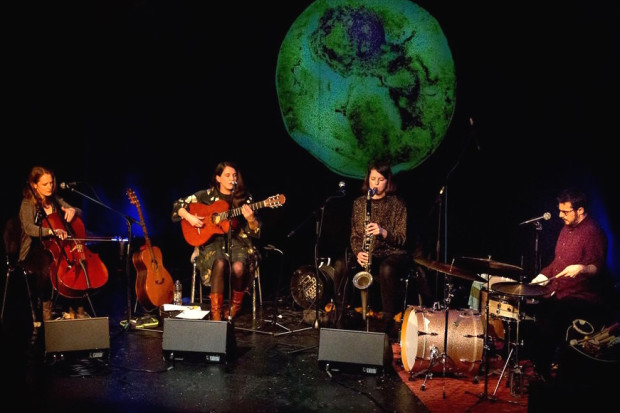
Boa
Dirty Desire
In 2004, Island Def Jam Music Group, the world’s largest record label, released an album that had every reason to succeed. The recording artist was one of the most consistently chart-topping musicians of all time with five million-selling albums already, and it was all being produced by the then-emerging Timbaland. But upon release, it was met by indifference and underwhelming sales. Such things can happen to any megastar, but in this case a major factor of the album’s failure was that no one in North America or Europe had ever heard of this megastar before. It speaks to the challenge this particular album faced in the marketplace, and its subsequent lack of impact, that the name Utada Hikaru doesn’t provoke mass recognition.
The only place the album in question, Exodus, found a warm reception was in Japan, where Utada’s previous successes had been. But this must have seemed like bitter consolation. Utada, a native speaker of English, was born in New York City and spent most of her early life in America. After Exodus, Utada returned to the Japanese music industry and once again enjoyed success after success, but in March of this year she has returned to English-language music with a second album, This is the One, representing another grasp at the commercial success that slipped away from her five years ago.
The mainstream music market, however, is mostly a one-way pump, with the USA, and, to a lesser extent, the UK being the two main chambers disseminating their output worldwide but not accepting very much back in. Walking into the nine-storey Tower Records in the Shibuya district of Tokyo – the largest record store in the world – you are presented with a prodigous array of music, and one which is very clearly culturally delineated. The ground floor devotes half of its floor space to shelves predictably labeled ‘Pop’, ‘Rock’, ‘Hip-Hop’ and the other expected categories. The other half features shelves labelled ‘J-pop’, ‘J-rock’ and ‘J-hip-hop’. The barrier between the music imported from America and Europe and the locally produced music could not be more distinct. But however large the Japanese market may be – with a population of 127 million it has 18% of the global market share – and however significant it may have been for Utada to have found so much success there, at a mammoth 35% the United States is the market upon which the sights of countless musicians and their hangers-on are always set. It is not an easy transition into the American market, however, being fraught with compromises of language and identity.
Though Utada grew up in the United States, she was already a part of a Japanese music dynasty, her mother in her youth being a famous enka singer. The enka style can be seen as a precursor to modern J-pop, but where enka ends and J-pop begins may be in the former’s adherence to traditional Japanese vocal clarity. While enka takes Western-style, sweeping ballads and imposes Japanese sensibilities upon it, J-pop is a shift in the opposite direction: its musical forms are even more unmistakably Western, and the vocal Japanese sometimes contorts in surprising ways to accommodate the Western influence.
Out of thirteen tracks on Heart Station, Utada’s 2008 album in Japanese, only three have titles written in Japanese. This is J-pop’s strange relationship to the English language. On the title track, in which feelings of love are compared to a radio transmitting emotions, the phrase ‘Heart Station’ never appears in a literal Japanese equivalent, which would be omoi no kyoku. Whenever the phrase appears in the otherwise-Japanese lyrics, it is rendered either in standard English, or in katakana, a system of adapting foreign loanwords to the Japanese language. Thus ‘Heart Station’ is sung ‘Hatto Sutaishun’ when required to fit the metre of the song. The lyrics that immediately follow also contain an interjection of English: ‘Konya mo rikuesuto kitemasu / “I love you”,’ meaning ‘Tonight’s [song] requests coming in are also / “I love you”.’
The sudden appearance of English phrases of varying coherence seemingly out of context is perhaps what most Western listeners will find somewhat jarring about J-pop. And even understanding the Japanese vocals in J-pop is more complicated than simple familiarity with spoken Japanese. In a marked departure from enka’s vocal clarity at the expense of Western familiarity with the music, J-pop will sometimes dramatically alter how the Japanese phrases, words, and syllables are pronounced in its adherence to the metre of the song. For example, in modern spoken Japanese, where laconic brevity seems to be highly valued, a word like ‘kitemasu’ in the above-quoted lyric, will usually drop the final vowel sound, ‘u’. In the song, however, to fit the metre, the ‘u’ sound is not only pronounced to make it rhyme with ‘you’, but it is sung over a full four beat measure. This is like trying to make the word ‘house’ rhyme with the word ‘me’ by pronouncing the silent ‘e’ at the end.
If J-pop is an exercise in Japan consuming American culture at the expense of its own, it is not without its own unique evolutionary path. J-pop frequently looks like what Western pop would have had it not subsumed the increasingly mainstream appeal of contemporary R&B and hip-hop in the 2000s. In many cases, the lyrics of J-pop songs evoke the naive sexless romantic universe that the girl and boy bands of the nineties use to typify. J-pop can seem like an endless syrupy parade of jubilant exhortations of strangely innocent desire and inoffensively melancholy ballads when that puppy love is unrequited.
When J-pop artists attempt the transition to the English-language market, however, the innocent romantic universe of their Japanese lyrics tends to vanish. Utada’s two American releases are marked by a brazen sexual energy that is somewhat startling in comparison to her more tween-friendly Japanese discography. Exodus had Utada suggesting that she ‘mix gene pools: Eastern, Western’ and This is the One amplified this change with lyrics that brag about hitting nightclubs wearing ‘sexy stiletto boots / Tight jeans, no panties on’.
In the racier second half of This is the One, the lyrics prompt other issues. ‘Dirty Desire’ describes Utada’s fantasies through several verses of innuendo (‘During my nine-to-five, / I’m thinking six and nine.’) and then astonishingly boasts she will ‘love you long time’. This surprising appropriation of a racial stereotype highlights an additional challenge that Utada and her marketers face: how to present her background and ethnicity to an unfamiliar marketplace. Much of the history of American popular music has been a story of tension between African-American traditional musical forms and their alleged appropriation by subsequent Caucasian artists. This tension has simmered into the current American popular music landscape such that it remains a somewhat binary landscape of Caucasian and African-American artists (with the exception of Latin-American music). In the culture that Utada aspires to succeed within, an Asian artist is still something of an anomaly. While Utada has said she feels the mainstream music scene needs such an injection of foreign influence, it won’t make it any easier for her.
Her Japanese identity was at the forefront of the unsuccessful Exodus. The eponymous single featured Utada describing the culture shock she felt when she moved to Japan in her teenage years to become a singer. ‘The Workout’, a bass-heavy song that was obviously intended to be a nightclub dance floor shredder, declares that she will show the listener ‘how people in the Far East get down’; in ‘Easy Breezy’ the chorus chants ‘You’re easy breezy / And I’m Japanese-y’.
Five years later, on This is the One, acknowledgement of her Japanese background is, for the most part, pushed below the surface. Although ‘Automatic, Pt. II’ is a nod to her first hit single in Japan (from an album that is still the top-selling album of all time in that country), and another track samples the Japanese composer Ryuichi Sakamoto’s soundtrack to the film Merry Christmas, Mr. Lawrence, over which Utada sings about New York and Tokyo, the two cities she has called home at varying points, beyond this, This is the One concerns itself with wistful romantic longing and loss (drawing no doubt on her recent divorce with Japanese filmmaker Kazuaki Kiriya) and more energetic songs situating themselves firmly in nightclub and dance culture; the low-key treatment of Utada’s Japanese identity seems a deliberate adjustment towards the international market. It remains to be seen if This is the One can bring her the desired success. At the time of writing, the first single, ‘Come Back to Me’, had peaked in the main charts at no. 93.

BoA
March also saw the inaugural American release of pan-Asian superstar Boa Kwon, better known by her stage name BoA. BoA began her career in her native South Korea, but later came to be at the forefront of a cultural phenomenon called the Hallyu, or ‘Korean Wave’, which is analogous to the ‘British Invasion’ the USA experienced in the 1960s. The rise of Asian transnational media corporations, along with the relaxation of Chinese economic policies in the 1990s, generated an intense import and export of culture. In China, Korean pop-culture had the benefit of being as slick as its American and Japanese counterparts but without the negative cultural and historical concerns that Chinese audiences had with America and Japan, respectively. From the late nineties when her career began, Japanese language lessons were part of BoA’s musical training; such was the Korean music industry’s ready-made springboard to foreign success. But her current move into the American market presents her with far more challenges than Utada, as English is BoA’s fourth tongue after Korean, Japanese and Mandarin Chinese.
BoA seems to have gone all the way with an idealised version of Western pop music. Her album, eponymously titled BoA, is an unpretentious, unambiguous collection of club-ready tracks, with bass-heavy synths and autotune-seeped vocals about dance floors, clubs and DJs. BoA’s approach to recording her album seems to have been to defer to a cadre of English-speaking songwriters, producers, and language trainers to ensure her singing is couched in a veneer of familiarity. Numerous tracks were written by Western names including, surprisingly, Britney Spears; Utada by contrast is credited as a writer on every one of her album’s tracks. Regardless of whether BoA wrote the lyrics or if she learned to sing them phonetically, the effect is fairly convincing. It wouldn’t be difficult to mistake her for an American pop star like Britney Spears, so total is her adoption of Western pop characteristics.
Pop music is frequently accused of being a tool of cold emotional manipulation used by multinational corporations who contrive its ubiquity to squeeze the most profit from the product possible. The counter-argument, that the line between artistic collaboration and bowing to the altar of corporatism is rarely a clear one, doesn’t really have much room in the case of J-pop. Neither Utada nor BoA can escape the criticism that what they produce are works of commercial art, first and foremost. The formula for success, unsurprisingly, is clearly to have a combination of emotional and sensual songwriting set to catchy, familiar musical forms, couched in high-tech, expensive production and sold with photography that shows off beautiful singers. It’s a formula that’s alive and well within J-pop, to be sure, but to reach Western audiences, artists and their record company executives must go further, ruthlessly eliminating indigenous qualities in favour of perceived foreign norms. It’s a fascinating exercise in deliberate cultural adaptation, revealing a distilled and magnified, if crude, version of Western culture.
Published on 1 June 2009














